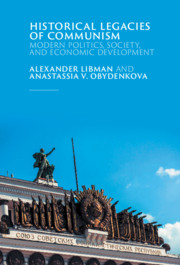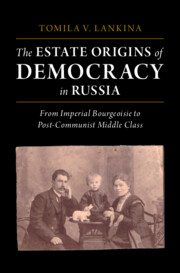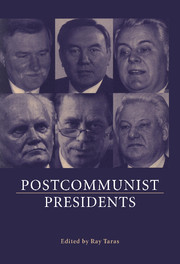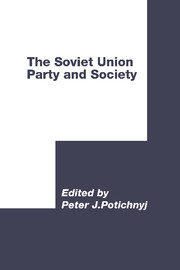Historical Legacies of Communism
Libman and Obydenkova reveal how legacies of the Communist Party of the Soviet Union (CPSU) have survived in the politics, economic development, culture, and society of post-Communist regions in the 21st Century. The authors show how this impact is not driven by Communist ideology but by the clientelistic practices, opportunism and cynicism prevalent in the CPSU. Their study is built on a novel dataset of the CPSU membership rates in Russian regions in the 1950s-1980s, alongside case studies, interviews and an analysis of mass media previously only available in Russian and discussed here in English for the first time. It will appeal to students and scholars of Russian and Eastern European politics and history, and anyone who wants to better understand countries which live or have lived through Communism: from Eastern Europe to China and East Asian Communist states.
- Investigates the long-term legacies of the Communist Party of the Soviet-Union (CPSU)
- Shows how variation in CPSU membership in the past affects the differing development paths of post-Communist regions
- Discusses the nature of the long-term legacies of clientelistic regimes
Reviews & endorsements
'In this highly original study, Libman and Obydenkova show that the saturation of Communist Party membership in various regions of Russia during the Soviet period remains associated with such contemporary phenomena as lower levels of inequality and democracy and greater bureaucratic corruption – decades after the demise of the Soviet state. In so doing, they adeptly demonstrate the Communist Party's persisting legacies for contemporary Russia.' Mark R. Beissinger, Henry W. Putnam Professor of Politics, Princeton University
'Libman and Obydenkova's study of Communist Party legacies in Russia takes the discussion of this phenomenon to a new level. An impressive combination of quantitative and qualitative analysis, brimming with thickly descriptive asides about Soviet and post-Soviet life.' Timothy Colton, Harvard University
'Using a wealth of novel data, Libman and Obydenkova demonstrate how variation in Communist Party membership across regions in Russia in the Soviet period have shaped the politics and economics of post-Soviet Russia in important and intriguing ways. This book should be high on the list for anyone interested in Russian politics and the impact of the past on the present.' Timothy Frye, Columbia University
'How much of what we see in Russia can be attributed to the persistent legacy of Communist rule? This book tackles this important question with ingenuity and persistence, breaking down 'communism' into potential vectors of influence on political, social, economic, and cultural outcomes we observe today. The focus on how different degrees of CPSU saturation in population across Russian regions is particularly welcome, given political, institutional, social, and cultural variation across the country.' Alexandra Vacroux, Harvard University
'By focusing on the important and often subtle long-term effects of subnational variations in Communist Party penetration during the Soviet period, this carefully researched, ambitious and well-written book, makes a significant contribution to our understanding of communist legacies in Russia and beyond, as well as to our broader understanding of the mechanisms underlying the emergence and persistence of historical legacies of authoritarian regimes.' Grigore Pop-Eleches, Princeton University
'This book asks a crucially important question to the understanding of the links between Soviet and post-Soviet politics. How has the system that has grown up in Russia been influenced by legacy of the Communist system, and in particular the all powerful Communist Party of the Soviet Union? This invaluable book explores the legacy of the party in the practice of politics in Russia today. A must read for anyone who really wants to understand the links between the Soviet past, and the Russian present.' Kathryn Stoner, Stanford University
'The [Historical Legacies of Communism] makes a significant contribution to the literature … is a must-read for those interested in communist legacies and postcommunist developments' Liu Peng, Europe-Asia Studies
Product details
January 2021Hardback
9781108829984
382 pages
150 × 230 × 25 mm
0.69kg
Available
Table of Contents
- 1. Introduction
- 2. The CPSU legacy: Leninism or clientelism? 3. Cultural environment and Soviet cinematography as a legacy of the CPSU
- 4. Measuring CPSU legacies
- 5. Democracy
- 6. Corruption
- 7. Inequality
- 8. Mortality
- 9. Attitudes towards migrants
- 10. Economic development and innovations
- 11. The origin and persistence of legacies
- 12. Conclusion.






